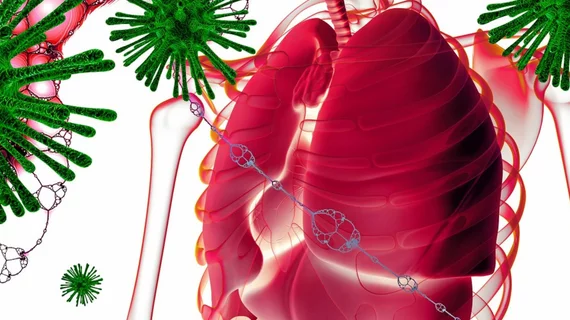Doctors at odds over low-dose radiation treatment in COVID-19 patients
Researchers combing through data in 2013 found low doses of radiation proved remarkably successful in treating pneumonia. That idea fell through the cracks until COVID-19 hit the U.S. earlier this year.
And now at least a dozen trials across the globe are underway testing low-dose radiation therapy as a treatment for pneumonia related to the new virus. At least 52,000 of the 135,000 American deaths have involved pneumonia, according to a July 16 story published by STAT.
Many experts are optimistic about LDRT’s potential, including Arnab Chakravarti, MD, chair of Ohio State’s radiation and oncology department, who is leading two of the four trials in the U.S. He believes the treatment will temper the inflammation that typically overwhelms the lungs in some with COVID-19.
Earlier this month, a group of Danish and Swiss researchers made a similar call for trials investigating LDRT’s effectiveness, saying “the time has come” to utilize it in the fight against the novel virus.
But others aren’t so sure. Ralph Weichselbaum, MD, a radiation oncologist at UChicago Medicine, along with colleagues from Duke, Stanford, and the University of Nevada, Las Vegas, wrote a letter in May warning the risks of treatment are “unacceptable” for clinical trials.
“Everything I know about pulmonary effects of radiation would make something like this worse, not better,” Weichselbaum told the health news outlet.
Read more about this ongoing debate below.

